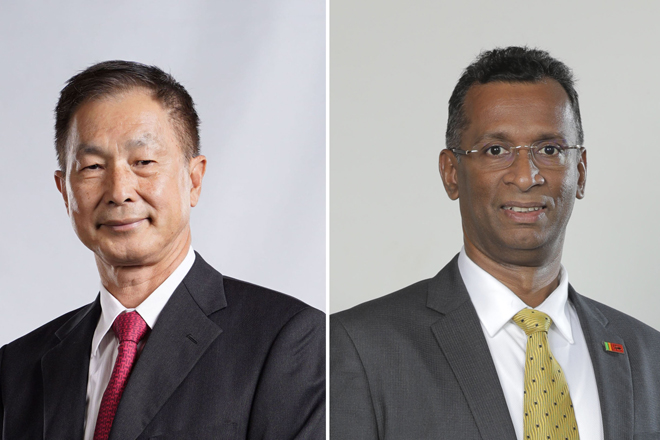Teejay Lanka PLC has reported operating profit of Rs 15.2 million and profit before tax of Rs 13.9 million for the first quarter of 2020-21 but posted a nominal net loss – its first since being listed on the Colombo Stock Exchange (CSE) – directly as a result of the loss of production and orders due to the COVID-19 pandemic.
In a filing with the CSE, Sri Lanka’s only multinational textile producer said revenue for the three months ending 30th June, at Rs 4.7 billion reflected a reduction of 42%. Group gross profit reduced by 73% to Rs 256 million but administrative expenses, although 31% lower than in the corresponding period of last year, totalled Rs 262.8 million for the quarter, resulting in profit before tax falling by 98%. Consequently, the Group posted a net loss of Rs 31.5 million for the three months under review, as against a net profit of Rs 453.6 million in the first quarter of 2019-20.
The Teejay Group posted net profit of Rs 2.4 billion for the full year of 2019-20, but revenue and net profit for final quarter of the year declined by 21% and 30% due to the suspension of both production and sales in March 2020.
Teejay Lanka Chairman Mr Bill Lam disclosed that in addition to the under-utilisation of capacity Teejay had received updates from customers of pushback of orders as well as credit extensions in the period under review. “To meet these trying times the team negotiated with suppliers to extend the credit period applicable to customers and went on a cost-cutting drive. This included a number of situational cost reduction projects such as salary reductions and freezing of new capital expenditure. These were some of the stringent measures to stabilise the ship in one of the biggest storms this company has had to face in its 20-year history,” he said.
Teejay Lanka CEO Mr Pubudu De Silva added that the Group was agile enough to introduce new fabrics for the manufacture of Personal Protection Equipment (PPE). “In addition, Teejay is working on new business opportunities including new customers and new product lines of defensive fabrics to meet customer demands relating to post COVID-19 requirements,” he said.
“As a result of the team’s speed in setting up COVID-19 prevention processes, our operations in Sri Lanka got underway by mid-May, and our highly mechanised plants in Sri Lanka were capable of producing the same capacity as pre-COVID-19 levels by the end of May 2020.”
Mr De Silva also revealed that reduction of reliance on a single destination for fabric has become high on the agenda of many customers who are now looking for diverse locations to source their fabric requirements. As a result, the last month of the quarter under review saw a significantly better performance than the first two months and this trend is expected to continue into the second quarter, generating a stronger order book compared to that of the first quarter.
Teejay Lanka was adjudged the Best Textile Exporter in Sri Lanka at the Presidential Export Awards presented by the Export Development Board (EDB) in 2019, moved up three places in the Business Today Top 30 companies ranking that year and was named among the 100 Most Respected Companies in Sri Lanka by LMD.
With manufacturing operations in Sri Lanka and India, Teejay is one of the region’s largest textile manufacturers, and supplies fabric to some of the best international brands across the world. Teejay Lanka PLC is a public quoted company with 39% public ownership. The company is backed by Sri Lanka’s largest apparel exporter, Brandix Lanka which has a 33% stake and Pacific Textiles of Hong Kong which owns 28% of the company. An ISO 9001:2015, ISO 14001:2015 and OHSAS 18001:2007 compliant company and the first in the industry to develop green fabric, Teejay has been listed on the Colombo Stock Exchange (CSE) since 2011 and was included in the S&P Top 20 Index in Sri Lanka. The Company has also been named among the Forbes ‘200 Best under a Billion in Asia’ and been recognised as the ‘International Textile Firm of the Year’ and the ‘International Dyer and Finisher’ by World Textile Institute, London.
(Media Release)

